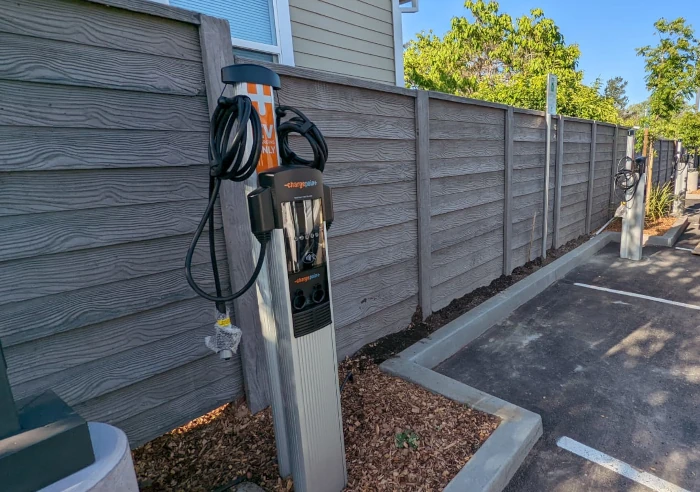
At Sunlight Electri-Cal Solutions, we offer professional electric vehicle charging installations for residential clients, specializing in Level 2 charging stations.
Whether you currently own an EV or plan to in the future, we can install an EV-ready outlet or a dedicated Level 2 charger to ensure your home is prepared. Our team will safely install your charger to meet all local codes and help you select the right charger based on your needs.
EVs are much cheaper to operate than gas vehicles. Charging an EV is significantly less expensive than refueling a gas-powered car, and with the right home charging setup, you can utilize solar power to charge your vehicle or buy lower at the off peak times.
There are three main types of residential EV chargers: Level 1(used with a standard 120-volt outlet), Level 2 (hardwired), and NEMA 14-50 outlet (typically used with portable chargers).
Charging time depends on the charger type and the EV’s battery capacity. Level 1 chargers can take 8-20 hours, Level 2 chargers typically take 4-8 hours, and DC Fast Chargers can charge a battery to 80% in 20-40 minutes.
Yes, you can install a Level 2 charger at home. Level 1 chargers use a standard outlet, while Level 2 chargers may require professional installation and permit.
Most EVs use the same standard connectors for Level 1 and Level 2 charging (SAE J1772 in North America), but compatibility can vary for DC Fast Chargers. Tesla vehicles require an adapter to use non-Tesla charging stations.
The cost can vary based on the type of charger and installation requirements. Sometimes upgrades of your Main Service Panel are necessary to accommodate a large load such as an EV. Contact our team to know more about how much an EV charger installation will cost per your scenario.

We’re dedicated to giving our customers premium tier 1 products, craftsmanship, and unbeatable warranties to safeguard their investments. Our business is founded on transparency, integrity, and reliability. We firmly believe that outstanding customer service is crucial for success!